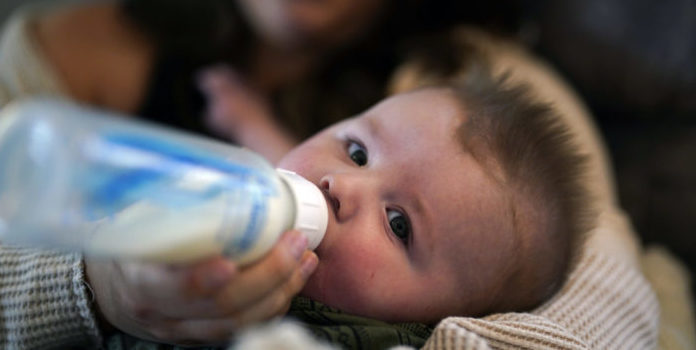(Molly Bruns, Headline USA) Overpopulation has been a boogeyman put up by climate alarmists, but studies show that a fertility crisis may be approaching.
According to the Daily Wire, the U.S. fertility rate has fallen by around 2% per year since 2014, hitting record lows in 2018, 2019 and 2020.
The COVID lockdowns seem to have played a significant role, with the fertility rate taking a 4% hit in 2020.
The rate did take a slight rebound, but the total fertility rate has dropped from 3.77 average children per woman in 1957 to 1.66 average children in 2021, according to the Centers for Disease Control and Prevention.
Currently, the U.S. is nowhere near “replacement-level fertility,” which would be a minimum average of 2.1 children per woman.
Tesla CEO Elon Musk brought up this issue on Twitter, arguing that “a collapsing birth rate is the biggest danger civilization faces by far.”
USA birth rate has been below min sustainable levels for ~50 years pic.twitter.com/v5PSLbvEAE
— Elon Musk (@elonmusk) May 24, 2022
“At least maintain our numbers,” the Tesla CEO said. “We don’t necessarily need to grow dramatically, but [at] least let’s not gradually dwindle away until civilization ends with all of us in adult diapers, in a whimper.”
Musk’s warnings come on the tail of more than a century of overpopulation warnings.
One of the first to raise the alarm was economist Thomas Malthus, who expressed the belief that population growth would outpace food production. In 1968, biologist Paul Ehrlich published his book The Population Bomb, which influenced and alarmed many Americans.
“The battle to feed all of humanity is over,” the first sentence thuds. “In the 1970s hundreds of millions of people will starve to death in spite of any crash programs embarked upon now.”
The boogeyman shifted from starvation to climate change in the 1990s.
With the fertility rate in extreme decline, experts warn that an economic slump could come in the near future. Conceptions dropped just before the last three economic recessions, according to University of Notre Dame researchers.
Immigration has kept the U.S. population from declining thus far, but given current trends that may not stave off any major economic events for long.

